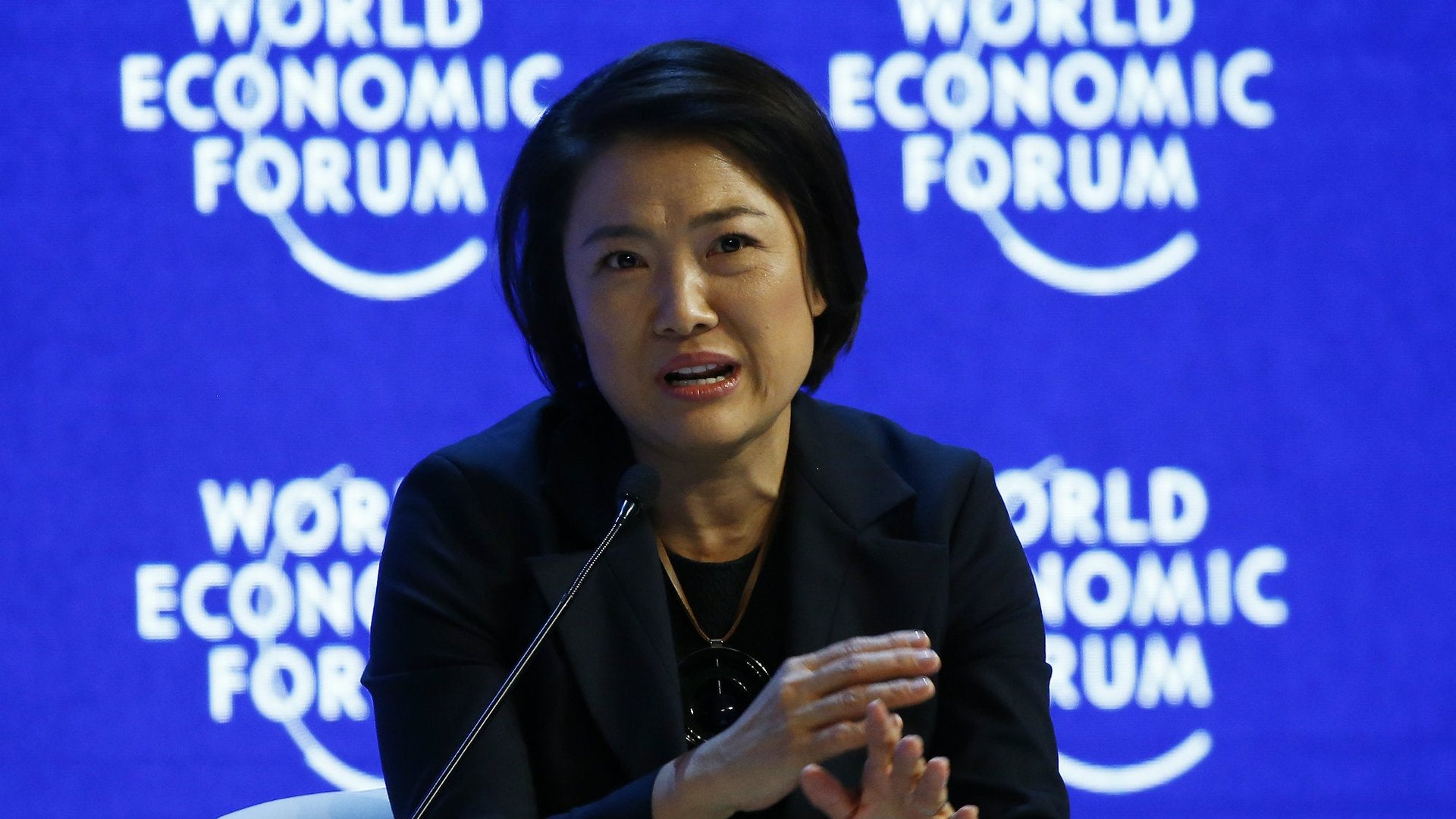Who won Davos? Day 3: Keeping it real
Davos, Switzerland


Davos, Switzerland
There must be something in the mountain air. Every year, the global elite descends on Davos to discuss the world’s thorniest issues, and almost immediately succumbs to groupthink. That’s why the annual World Economic Forum in the Swiss ski town has become known as the place where conventional wisdom is devised.
This year, the prevailing mood is gloomy. Oil prices are swinging wildly, stocks are plummeting, China’s economy is slowing, Europe is struggling to cope with refugees, and many, many other worries are weighing on delegates’ minds.
But as any smart investor knows, it often pays to defy the conventional wisdom. Zhang Xin, co-founder and CEO of SOHO China, the largest commercial real estate developer in China, isn’t afraid to break with the consensus.
Zhang is a plain-speaking, self-made billionaire who once worked in a garment factory, made her way to England, learned English, studied hard, and got a job as a banker at Goldman Sachs. She moved back to China and in 1995 and started a real estate company with her husband which has done really, really well. Well enough to generate a net worth of more than $2 billion.
She has been a fixture at many high-profile discussions at Davos, dispensing wisdom on the state of the Chinese economy, how to boost global economic growth, and on the third day of Davos, achieving gender parity.
Unlike many powerful female CEOs, when it comes to gender equality she prefers to focus on the substantive progress that has been made to date. Many of the things we now take for granted would have been inconceivable just 30 years ago, she said. There are women running the Federal Reserve, IMF, Germany, South Korea, Taiwan, and perhaps soon the United States.
“We still see gaps but we are also seeing an incredible turning point in our history,” she said at a breakfast gathering. Later, on a star-studded panel that included Facebook COO Sheryl Sandberg and man of the moment Justin Trudeau, Canada’s prime minister, she stated in her no-nonsense style that she was in favor of quotas to boost female representation, which seemed to catch the others on stage off-guard.
She also spoke candidly about the difficulty of working with an equally ambitious husband, noting that friction in their early days of building a company ”almost cost the marriage” and led to a separation for two months. Letting each other ”be himself or herself” was the key, she said.
Her enthusiasm was infectious. Was she upset that only 18% of participants were women? It’s better than it used to be. Do women have a problem advancing because they feel the need to be liked? Her husband “wants as many followers as me—he wants to be as liked as me,” she said. (She has 9 million followers on Weibo, the moderator noted.)
If the World Economic Forum truly wants to improve humanity’s lot, considering all points of view is critical. While there remains a long way to go to reach parity, it’s worth taking stock of the small victories too—for reminding us of this, Zhang Xin won Davos on day three. 🏆
Seen and heard
Quote of the day: ”McKinsey is the cancer on creativity in every company.” —Artist and entrepreneur Olafur Eliasson
Rise of the robots: “You either need to be smarter than the machine or cheaper than the machine. And the machines are getting smarter and cheaper.”—An American tech executive
Brand awkwardness of the day: Jonas Prising was a shoo-in to get teased by the moderator of a gender-equality panel, given that he is the boss of a recruitment company called Manpower.
Speaking in code: A veteran Davos PR manager has a saying for the scheduling snafus that arise during the forum, evoking a nearby ski area: “It’s gone up the Schatzalp.”
Combined distance walked by Quartz reporters: 20.3 miles (32.7 kilometers)